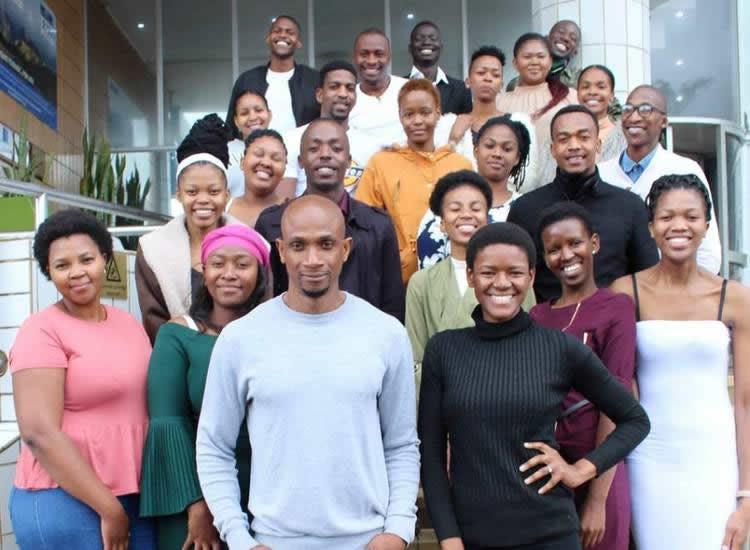The 20 young designers who are part of the Durban Fashion Fair’s (DFF) annual mentorship programme are making steady progress towards showcasing their collections on the ramp at the Inkosi Albert Luthuli International Convention Centre on December 11, 2020.
With less than two months to go, the much-anticipated showcase, which will be followed by the DFF Recognition Awards, will mark the end of an intensive six-month learning period for a diverse group of young designers who range from self-taught to recent graduates from fashion schools across the Province.
Mayor of eThekwini Councillor Mxolisi Kaunda said: “Each year, the eThekwini Municipality invests in a mentorship programme aimed at preparing newcomers to the fashion industry for the many challenges that they will face as they build their careers and businesses in this highly competitive sector.”
Kaunda emphasised that over the past nine years the Municipality has provided solid support for emerging designers through various partnerships to ensure local fashion emerge globally and bring in economic growth. “Therefore, we continue to create opportunities in sectors such as the clothing and textile industry which is earmarked as one of the most significant pillars of the City’s Economic Recovery Plan to uplift the economy.”
According to Fezile Mdletshe, managing director and founder of the Fezile Fashion Skills Academy and the Fezile Mdletshe Fashion Agency in KwaMashu, who is heading up the 2020 academic programme said this year’s mentorship programme may have been delayed by Covid-19 restrictions but is now forging ahead.
She said that the programme was going extremely well and that, based on pre-assessments of the mentees, it would be divided into 10 steps.
The first step will cover product categories across casual, formal, mainstream, moderate, denim, bridal, evening and plus size wear.
Step two will cover design principles. “In relation to the product categories segment taught, the mentor and facilitator will educate on relevant terminologies for each product category. It is important that designers learn correct terms for categories in order for them to communicate effectively in their businesses with pattern makers, garment technologists and clients,” explained Mdletshe.
As part of the third step of the programme – creative direction and design aesthetics – the year’s fashion trends will be unpacked and explained, and mentees will be guided on seasonal colour palettes, silhouettes, textiles and big seasonal global messages. “Designers will be educated on the art of researching in order to translate their inspiration.”
At the end of this section, designers will be able to analyse, forecast and filter fashion trends to suit an annual theme, incorporate seasonal fashion trends into their collections and visually translate inspiration into mood boards and fashion journals,” she said.
Step four will teach the mentees technical skills while step five will be fashion history and step six to be fabric orientation.
“Designers constantly need to be reminded of the importance of this principle because textiles change according to each season,” Mdletshe pointed out.
Step seven covers quality, step eight costing, business and financial literacy, step nine will teach mentees how to build their ranges while step 10 will cover basic marketing principles.
Mdletshe said she was impressed by the dedication of the 2020 mentees and their enthusiasm for learning about all things fashion. The introduction of a classroom setting this year will ensure that quality control in terms of garment construction, pattern making, and range building was in line with South Africa’s clothing standards.
For more information follow all the fashion action on #DFF2020 or @Dbnfashion_fair and remember to save the date and #supportlocal as you catch the Class of 2020 New Face models wearing the creations of our designer mentees on the catwalk at the ICC on December 11, 2020.


